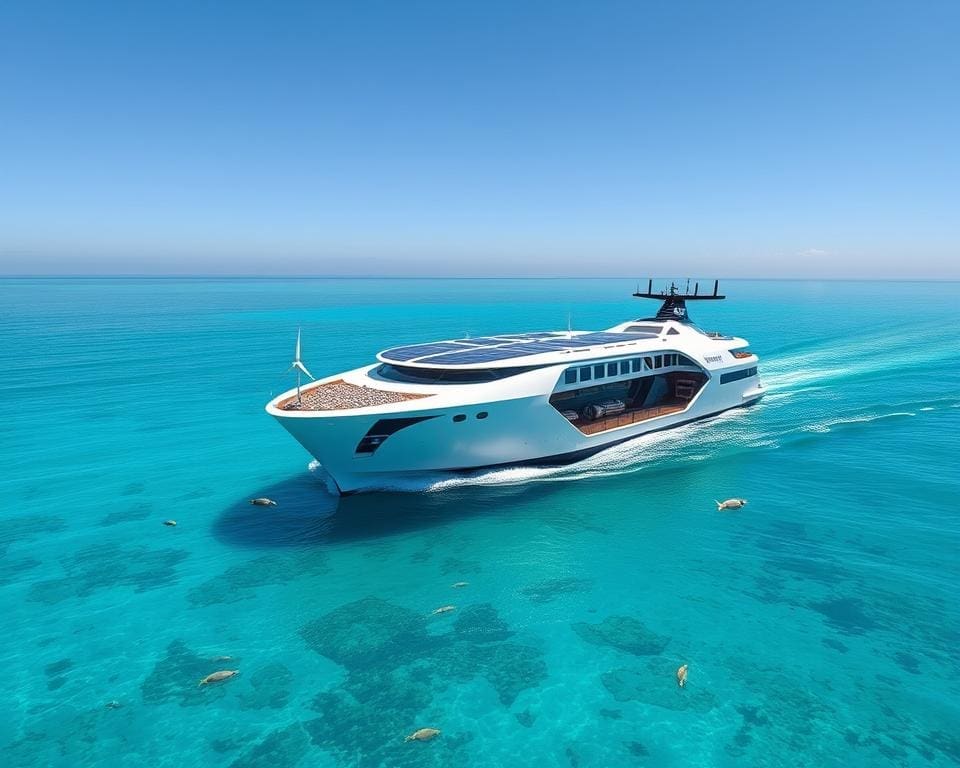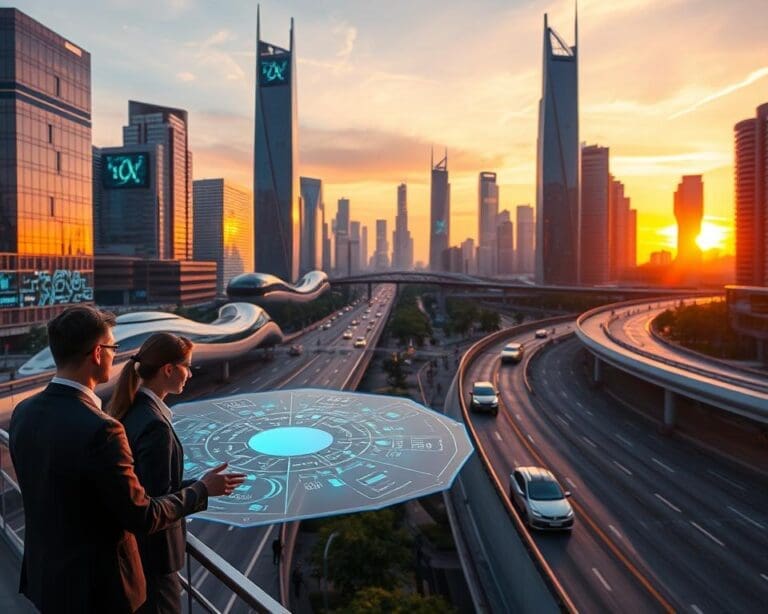As the world increasingly grapples with the repercussions of climate change, the shipping industry finds itself under scrutiny for its significant contribution to greenhouse gas emissions. Eco Ships represent a vital step towards achieving a more sustainable maritime future. These zero-emission vessels are not merely a response to environmental challenges; they embody the transformative power of tech innovations aimed at revolutionising the industry. With the International Maritime Organisation reporting that shipping accounts for approximately 2.5% of global CO2 emissions, the imperative for sustainable shipping solutions has never been more pressing. This article delves into the groundbreaking technologies redefining marine transport, illuminating their potential to forge a greener path for generations to come.
The Importance of Eco Ships in Sustainable Shipping Solutions
Eco Ships play a crucial role in achieving zero-emission goals, a challenge the maritime industry must embrace. The International Maritime Organization (IMO) aims to significantly cut greenhouse gas emissions from shipping, targeting a 50% reduction by 2050, with aspirations for complete elimination by 2100. By implementing groundbreaking technologies, Eco Ships exemplify a proactive response to this pressing challenge.
Understanding Zero-Emission Goals
Zero-emission goals encapsulate the vision for a cleaner maritime sector. Achieving these goals is essential for mitigating climate change and fostering a healthier environment. The transition to zero-emission vessels not only aligns with global sustainability efforts but also paves the way for innovative practices across the shipping industry.
Benefits of Eco-Friendly Maritime Transport
The benefits of eco-friendly maritime transport extend far beyond compliance with regulations. Key advantages include:
- Improved air quality, contributing to healthier ecosystems and communities.
- Reduced fuel costs, creating operational efficiencies that positively impact profitability.
- Enhanced public perception of companies committed to sustainability, fostering trust and loyalty among consumers.
Prominent brands such as Maersk and Wärtsilä are investing heavily in sustainable shipping solutions, setting a benchmark for industry-wide change. Their initiatives not only demonstrate the viability of Eco Ships but also inspire others to join the movement towards a greener future.

Eco Ships: Tech Innovations for Zero-Emission Vessels
The shift towards eco ships represents a significant evolution in maritime engineering. Groundbreaking technologies are paving the way for vessels that not only meet zero-emission standards but also enhance operational efficiency. The combination of advanced design principles and renewable energy integration is redefining the capabilities of modern shipping.
Groundbreaking Technologies in Ship Design
Innovative materials and design approaches are crucial for the next generation of eco ships. The utilisation of lightweight materials such as advanced composites leads to improved fuel efficiency, allowing ships to travel greater distances with less energy. Hydrodynamic shapes are becoming common in vessel design, minimising resistance and enhancing performance. These tech innovations underscore the industry’s commitment to embracing sustainable shipping technology.
Integrating Renewable Energy Sources
The integration of renewable energy sources is transforming how vessels operate. Solar panels and wind turbines are increasingly featured on ships, enabling them to harness natural energy for propulsion and onboard power. Companies like Ocean Infinity exemplify this trend with their autonomous vessels, designed to utilise the wind’s power effectively. Such advancements are not merely enhancements; they align with the broader aim of creating renewable energy ships that contribute to the reduction of carbon footprints in maritime transport.
Green Maritime Technology: Key Innovations Leading the Change
The maritime industry is undergoing a transformation as innovations emerge to address environmental concerns and enhance sustainability. Green maritime technology is at the forefront of this movement, highlighting the shift towards cleaner energy solutions. Significant advancements in hydrogen-powered vessels and battery-powered ships are setting a remarkable precedent for carbon neutrality in shipping.
Hydrogen-Powered Vessels
Hydrogen-powered vessels represent a pioneering approach within the realm of green maritime technology. These vessels utilise hydrogen fuel cells to generate energy, producing only water as a by-product. Projects such as the Hydroville serve as exemplary models, showcasing the practicality of utilising hydrogen for large-scale maritime applications. This shift not only eliminates harmful emissions but also demonstrates the potential of hydrogen as a sustainable energy carrier in shipping.
The Role of Battery-Powered Ships
Battery-powered ships are emerging as a practical solution for short-haul routes, contributing to a noticeable reduction in pollution levels. This sector is rapidly evolving, with tech innovations driving advancements in battery technology. Leading companies like Siemens and ABB are instrumental in developing efficient battery systems that integrate seamlessly into new maritime designs. These innovations offer a promising alternative to traditional fuels, ensuring a greener future for maritime transport.
Challenges and Opportunities in the Development of Carbon-Neutral Vessels
The journey towards achieving carbon-neutral vessels presents a landscape ripe with opportunities, though it is not without its challenges in eco ships. Many factors contribute to the complexities of developing sustainable solutions for maritime transport, primarily revolving around technology, regulation, and financing.
Addressing Technological Hurdles
One of the primary challenges in eco ships lies in overcoming technological hurdles. The demand for efficient energy storage solutions is significant, as current battery technologies may not yet meet the rigorous energy requirements of larger vessels. Retrofitting existing ships with new technologies introduces additional complexities, often requiring integration with outdated systems. The path towards innovation remains vital, as maritime operatives seek reliable options to create truly carbon-neutral vessels.
Regulatory Support and Market Demand
Regulatory support plays a crucial role in steering the maritime industry towards sustainability. Governments are increasingly imposing stricter emissions regulations. These regulations can serve as a double-edged sword, creating challenges for shipbuilders while simultaneously incentivising them to invest in greener technologies. Market demand is shifting towards eco-friendly options, compelling stakeholders to adjust their strategies in favour of compliance and innovation.
Investment in Research and Development
To successfully navigate the complexities of eco ships, significant investment in R&D is essential. Collaborations between shipbuilders and technology firms are becoming more prevalent, driving forward new ideas and solutions. The focus on sustainable designs and practices not only enhances the potential for carbon-neutral vessels but also strengthens the industry’s capacity to meet rising consumer expectations for environmental accountability.
The Future of Emission-Free Ship Technology
The maritime industry stands on the brink of a significant transformation, as the future of eco ships signals a shift towards widespread adoption of emission-free ship technology. As stakeholders increasingly recognise the importance of sustainable shipping solutions, there is a growing consensus that eco ships will be vital in reducing the carbon footprint of global trade. In this evolving landscape, technological advancements will optimise propulsion systems, ensuring vessels operate efficiently while remaining competitive in the marketplace.
Investment in artificial intelligence is set to revolutionise ship routing and automation, further enhancing fuel efficiency and driving down operational costs. With companies committed to harnessing these innovations, the maritime sector is poised to lead the way in embracing practices that protect our planet. As regulatory pressures intensify, the momentum behind eco ships grows stronger, creating an environment ripe for sustainable solutions and collaborative efforts across the industry.
As the future of eco ships unfolds, the commitment from governments, organisations, and shipbuilders will ensure that emission-free ship technology becomes the norm rather than the exception. The journey towards a greener maritime industry is not only achievable but essential, paving the way for sustainable shipping solutions that future generations can depend on. Embracing this change today will help lay the foundation for a more environmentally conscious tomorrow.








